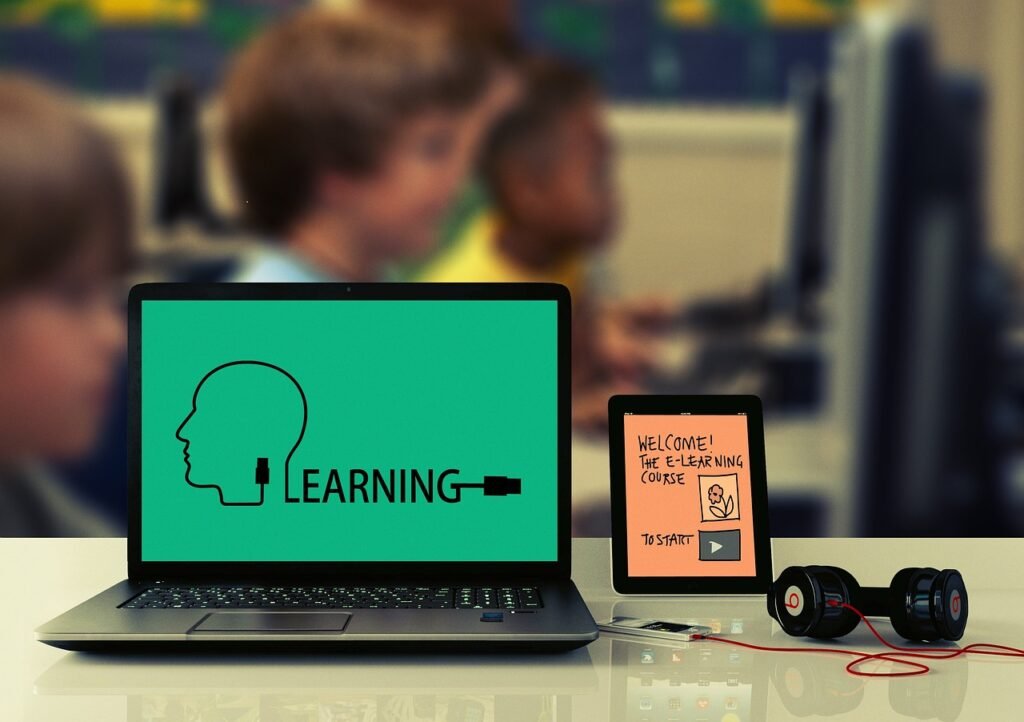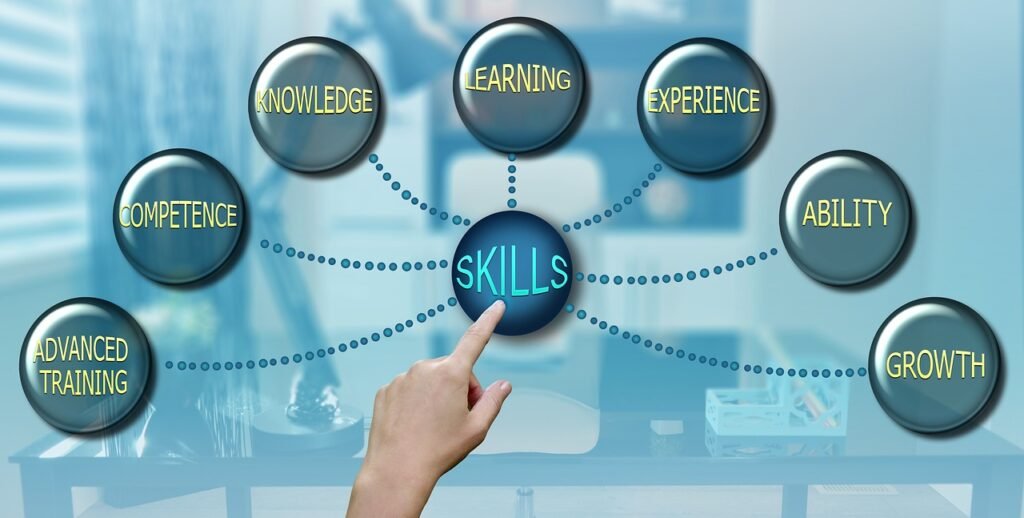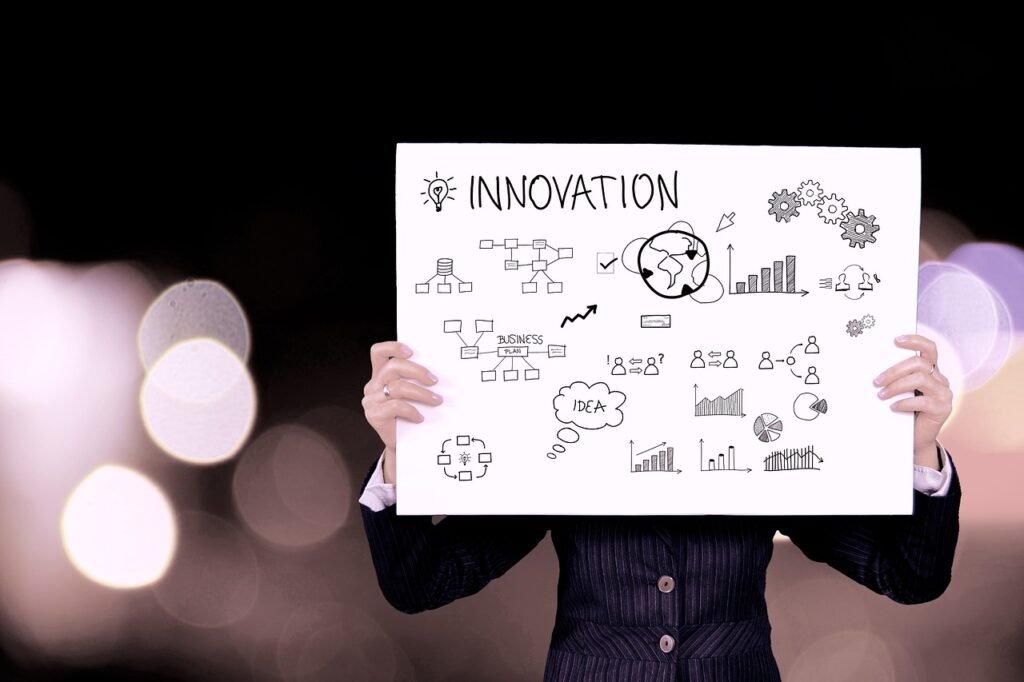
Introduction to the Concept of a Growth Mindset

In today’s fast-paced world, adopting a growth mindset is crucial for unlocking your true potential.
At its core, a growth mindset is the belief that our abilities and intelligence can be cultivated through dedication, effort, and continuous learning.
This approach fosters a love for learning and develops the resilience necessary to overcome obstacles and achieve significant accomplishments.
Unlike a fixed mindset, which assumes our capabilities are unchangeable, a growth mindset empowers us to embrace challenges and see them as opportunities for growth.
By shifting our perspective, we become more open to trying new things and taking risks, knowing that failure is not a setback but a stepping stone toward improvement.
One of the key aspects of a growth mindset is the willingness to learn from mistakes.
Instead of viewing errors as a negative reflection of our intelligence or character, we can see them as valuable learning experiences.
This shift in thinking encourages us to explore different strategies, seek feedback, and make adjustments to our approach, ultimately leading to better outcomes.
Furthermore, a growth mindset helps us develop perseverance. When we encounter difficulties, it’s easy to feel discouraged and give up.
However, by adopting this mindset, we understand that persistence and hard work are essential components of success.
Each challenge we face becomes an opportunity to build resilience and strengthen our determination.
In professional settings, a growth mindset can transform the way we approach our careers.
It encourages continuous skill development and adaptability, making us more competitive in the ever-changing job market.
Whether it’s learning a new software program, improving our communication skills, or taking on a new project, a growth mindset drives us to seek out opportunities for self-improvement and professional growth.
In educational environments, fostering a growth mindset in students can lead to remarkable achievements.
When students believe in their ability to improve and grow, they are more likely to engage in challenging tasks, seek help when needed, and persist through difficulties.
This attitude not only enhances their academic performance but also prepares them for lifelong learning and success.
Cultivating Resilience with a Growth Mindset

Resilience, the ability to bounce back from adversity, is crucial for achieving long-term success.
By viewing obstacles as opportunities to grow, individuals with a growth mindset build the resilience needed to persevere.
Praising effort and improvement rather than innate talent helps develop hardy and resilient individuals.
When individuals believe their abilities can be developed, they are more likely to take on difficult tasks and persist through challenges.
For instance, athletes who consistently push their limits in training sessions not only enhance their physical abilities but also build mental toughness.
This resilience carries over into other aspects of their lives, helping them face and overcome personal and professional challenges.
In the workplace, resilience is a key factor in maintaining productivity and morale, especially during challenging times.
Teams that adopt a growth mindset are better equipped to handle setbacks, adapt to changes, and continue working towards their goals.
For example, when a project doesn’t go as planned, resilient team members analyze what went wrong, learn from the experience, and apply those lessons to future endeavors.
Education systems that emphasize a growth mindset help students develop resilience by encouraging them to embrace challenges and view failures as opportunities for learning.
When students are praised for their effort and strategies rather than just their grades, they learn to value the process of learning and become more resilient in the face of academic challenges.
In personal relationships, resilience allows individuals to navigate conflicts and setbacks more effectively.
Those with a growth mindset are more likely to seek constructive solutions and work through difficulties, strengthening their relationships over time.
By cultivating resilience, we can build stronger connections with others and navigate life’s ups and downs with greater ease.
Learning and Growing from Failure

Embracing failure as a learning opportunity is a hallmark of a growth mindset.
People with a fixed mindset tend to see failure as a reflection of their intelligence or character, while those with a growth mindset view it as a chance to learn and improve.
Countless successful people, like Thomas Edison, who famously said, “I have not failed.
I’ve just found 10,000 ways that won’t work,” have learned from their failures and achieved greatness.
Viewing failures as learning opportunities helps in developing better strategies and refining approaches.
For instance, entrepreneurs often encounter multiple setbacks before finding a successful business model.
Their willingness to analyze what went wrong and make necessary adjustments often leads to innovative solutions and long-term success.
By adopting this mindset, individuals can turn every misstep into a stepping stone toward improvement.
Moreover, learning from failure fosters resilience, making us better equipped to handle future challenges.
For example, athletes who miss the mark in competitions often review their performance to identify areas for improvement.
This iterative process not only enhances their skills but also builds the mental toughness required to excel.
In academic settings, encouraging students to see mistakes as part of the learning process can significantly enhance their performance.
When students understand that errors are opportunities to deepen their understanding, they become more engaged and proactive in their studies.
They are more likely to take on challenging subjects and persist through difficulties, ultimately achieving higher levels of success.
In professional environments, a culture that views failure as an opportunity for growth can lead to innovative breakthroughs.
Teams that analyze and learn from failed projects can develop more effective strategies and achieve better results in future endeavors.
This approach not only fosters a more positive and dynamic workplace but also drives continuous improvement and innovation.
By reframing our perception of failure, we can unlock a wealth of opportunities for personal and professional growth.
This mindset shift encourages us to experiment, take risks, and continually strive for excellence.
Facing Challenges Head-On

Taking on challenges is a catalyst for skill development.
This mindset helps us develop new skills and achieve our goals.
For example, athletes often push themselves to the limit to improve their performance, using each challenge as a stepping stone toward mastery.
By tackling challenges directly, they enhance their skills and achieve new heights.
In the professional realm, approaching challenges with a growth mindset can lead to significant advancements.
Employees who take on challenging projects often find that these experiences accelerate their learning and career growth.
Rather than shying away from difficult tasks, viewing them as opportunities for professional development can transform how we approach our work.
For example, a software developer might choose to work on a complex project involving a new technology.
By embracing this challenge, they not only learn new technical skills but also gain confidence in their problem-solving abilities.
In educational settings, students who are encouraged to face academic challenges head-on develop a deeper understanding of the subject matter.
When educators create an environment that values effort and resilience over innate talent, students are more likely to take on difficult assignments and persist through struggles.
This approach not only enhances their academic performance but also builds the mental fortitude necessary for lifelong learning.
In personal development, taking on challenges can lead to profound growth.
Whether it’s learning a new skill, taking up a demanding hobby, or pursuing a long-term personal goal, the journey through challenges builds character and resilience.
For instance, someone training for a marathon learns valuable lessons about discipline, perseverance, and goal-setting along the way.
Each hurdle they overcome adds to their sense of achievement and self-efficacy.
In all aspects of life, facing challenges with a growth mindset empowers us to transform obstacles into opportunities.
By embracing difficulties and viewing them as part of the growth process, we can continually expand our capabilities and achieve our fullest potential.
Acquiring New Abilities

Acquiring new abilities is a cornerstone of adopting a growth mindset.
This process keeps us mentally sharp and perpetually engaged in personal development.
By setting clear, achievable learning goals, we can map out our journey toward mastering new skills.
For instance, learning a new language not only broadens your communication skills but also enhances cognitive flexibility.
Similarly, picking up a musical instrument can be a rewarding way to boost creativity and improve concentration.
To begin this journey, start by identifying what you want to achieve.
Break down your goals into smaller, manageable tasks that can be tackled one step at a time.
This method not only makes the overall goal seem less daunting but also allows for consistent progress and small wins that keep motivation high.
For example, if you aim to learn coding, begin with the basics and gradually move on to more complex projects.
Each milestone you reach builds confidence and reinforces your ability to tackle the next challenge.
Online courses, workshops, and tutorials can be invaluable resources in this learning process, providing structured guidance and expert insights.
Incorporating regular practice into your routine is crucial for acquiring new abilities.
Dedicate specific times each day or week to focus solely on your learning goals.
Consistency is key to turning new skills into habits.
For instance, if you’re learning to play the guitar, setting aside 30 minutes every day for practice can lead to significant improvements over time.
Seeking feedback is another essential component.
Constructive feedback helps you identify areas for improvement and refine your skills.
Whether it’s a mentor, a coach, or a peer, having someone to provide insights can accelerate your learning curve.
Apply this feedback diligently to see continuous improvement.
Finally, don’t forget to celebrate your progress.
Acknowledging your achievements, no matter how small, fuels your motivation and keeps you focused on your long-term goals.
By consistently acquiring new abilities, you not only enhance your personal and professional life but also cultivate a mindset geared toward lifelong learning and growth.
Using Feedback for Self-Improvement

Feedback is a powerful tool for personal growth. Accepting constructive feedback helps us identify areas for improvement and make necessary adjustments.
Those with a growth mindset welcome feedback as a valuable source of information.
To incorporate feedback into personal development, actively seek input from others, reflect on the insights, and implement changes to enhance your skills.
For instance, many successful entrepreneurs attribute their growth to the feedback they received and applied throughout their journeys.
Feedback can highlight blind spots we might not be aware of, making it an invaluable resource for self-improvement.
When seeking feedback, be specific about the areas you want to improve.
This approach not only makes the feedback more actionable but also shows your commitment to personal development.
Once you receive feedback, take the time to process it.
Reflect on the points raised and consider how they align with your goals and current strategies.
It’s essential to approach this process with an open mind, recognizing that constructive criticism is meant to help you grow, not to discourage you.
After reflecting, create an action plan based on the feedback.
Break down the insights into specific, achievable steps you can implement.
For example, if feedback suggests you need to improve your public speaking skills, consider enrolling in a workshop, practicing in front of a mirror, or seeking opportunities to speak in public.
Consistency is key. Regularly review the feedback and adjust your approach as needed.
Continuous improvement is an ongoing process that requires dedication and flexibility.
Additionally, don’t hesitate to seek follow-up feedback to gauge your progress and make further refinements.
Finally, cultivate a positive attitude toward feedback within your environment.
Encourage your peers and team members to seek and give constructive feedback.
By fostering a culture that values feedback, you create an atmosphere of mutual growth and continuous improvement.
Inspiring Others by Embracing a Growth Mindset

When you adopt a growth mindset, your actions can have a ripple effect on those around you.
Leaders who embrace this approach often find that their teams are more motivated, creative, and willing to take calculated risks.
Take a look at companies like Google and Microsoft; they cultivate environments of continuous learning and innovation, which encourages employees to stretch their capabilities and experiment without fear of failure.
Your attitude toward challenges and learning can be incredibly influential.
When you openly share your experiences and strategies for overcoming setbacks, you provide a powerful model for others to follow.
Imagine a workplace where everyone views challenges as opportunities and where setbacks are considered part of the journey toward improvement.
Such an environment fosters resilience, creativity, and collaboration.
Parents and educators can also inspire growth by modeling a mindset that values effort and persistence.
Children who see adults embracing challenges and learning from mistakes are more likely to adopt similar attitudes.
This not only enhances their academic performance but also prepares them for the complexities of life.
In social settings, discussing personal growth experiences and how you navigated through difficulties can encourage friends and family to adopt a similar mindset.
By celebrating each other’s progress and offering constructive feedback, you create a support system that values growth and resilience.
In essence, your commitment to a growth mindset can act as a catalyst, encouraging those around you to aim higher and push beyond their perceived limits.
By fostering an environment that celebrates learning and resilience, you contribute to a culture of continuous improvement and shared success.
Summary and Motivational Call to Action

Embracing a growth mindset equips us with the resilience to navigate challenges, the openness to learn from mistakes, and the drive to continuously develop new skills.
It’s a mindset that transforms obstacles into opportunities and turns setbacks into stepping stones for success.
By actively seeking feedback and applying it constructively, we position ourselves for ongoing improvement.
Take the first step today by viewing each challenge as a chance to grow.
Celebrate your small victories and learn from your setbacks, fostering a mindset that thrives on continuous development.
Share your experiences and strategies with those around you to inspire a collective pursuit of excellence.
In professional and personal spheres, this mindset will not only enhance your own growth but also create a supportive environment that encourages others to strive for their best.
Let’s commit to adopting a growth mindset and cultivating a culture of resilience and learning.
By doing so, we pave the way for shared success and innovation.
Remember, each step you take toward a growth mindset brings you closer to unlocking your full potential.
Begin today and watch as your efforts lead to transformative results.
